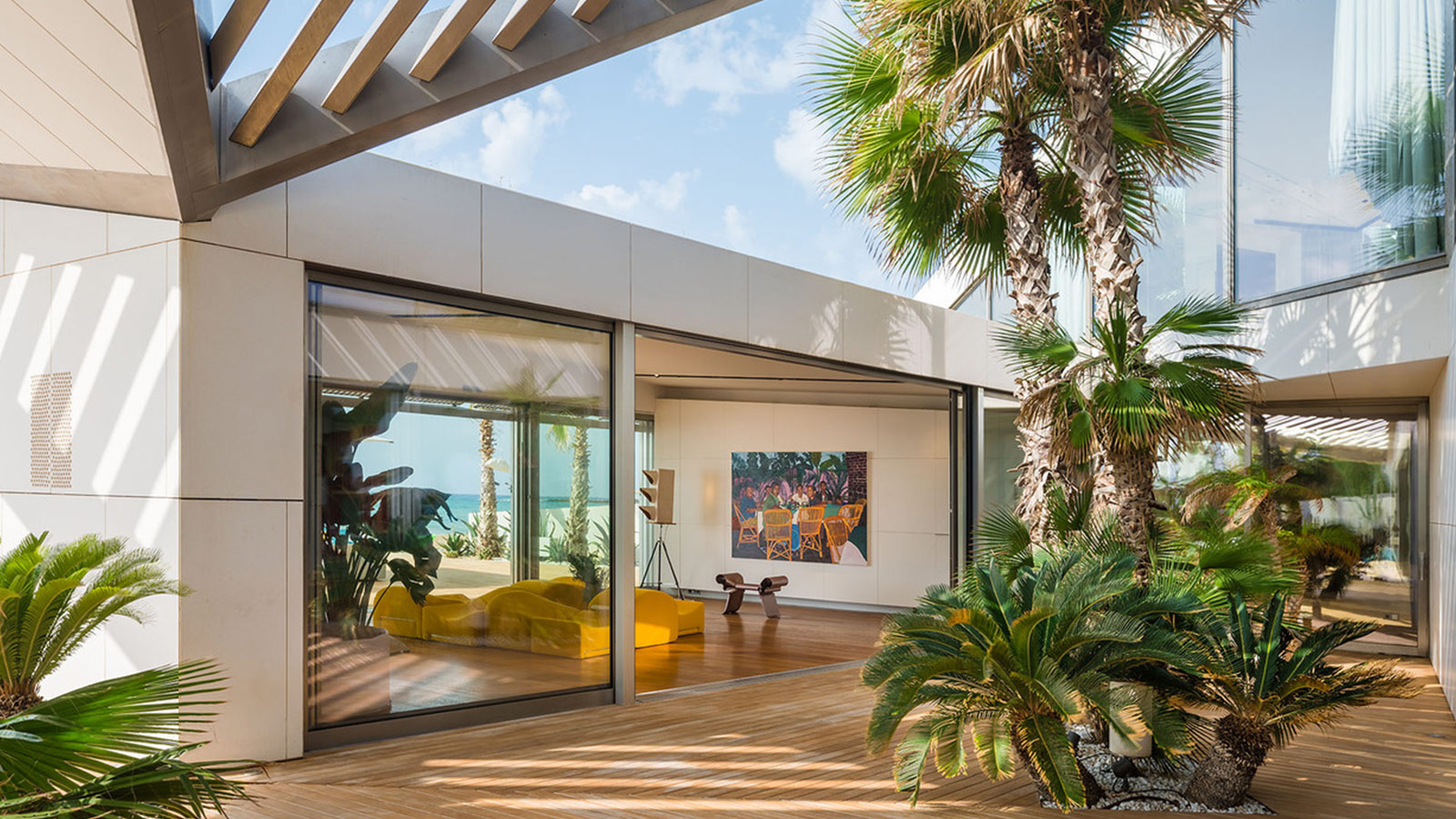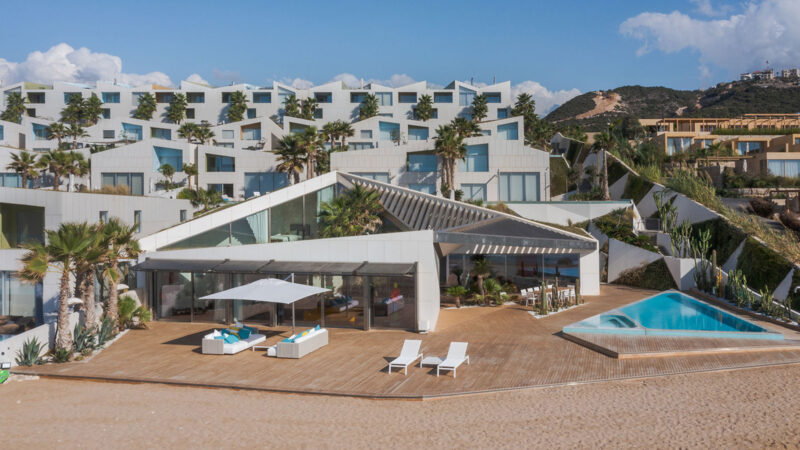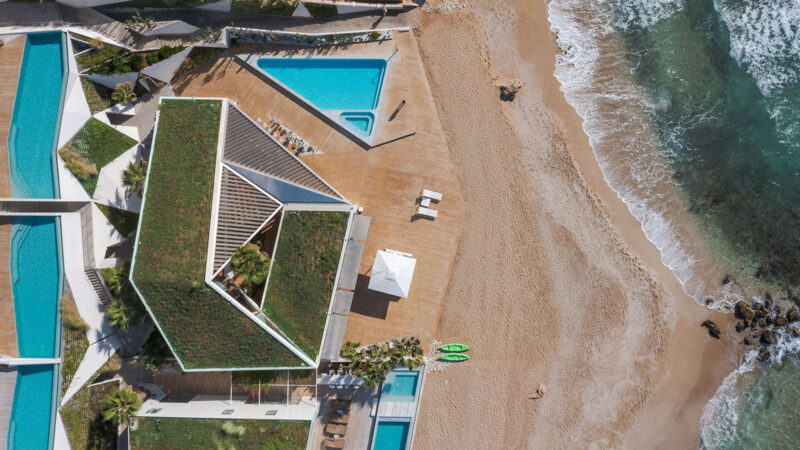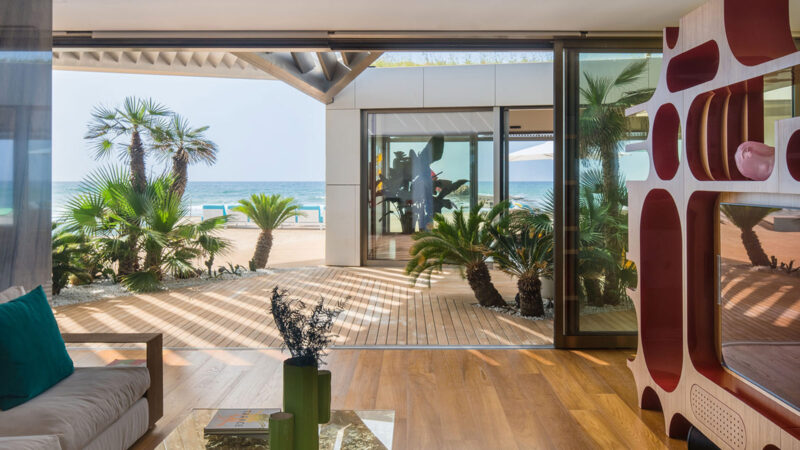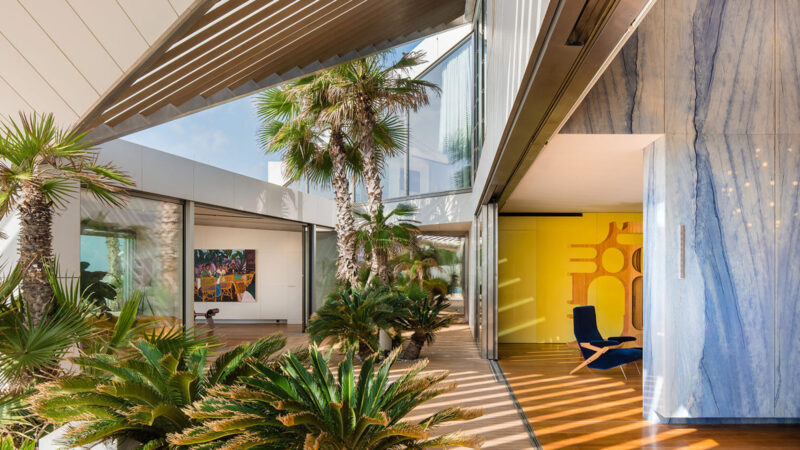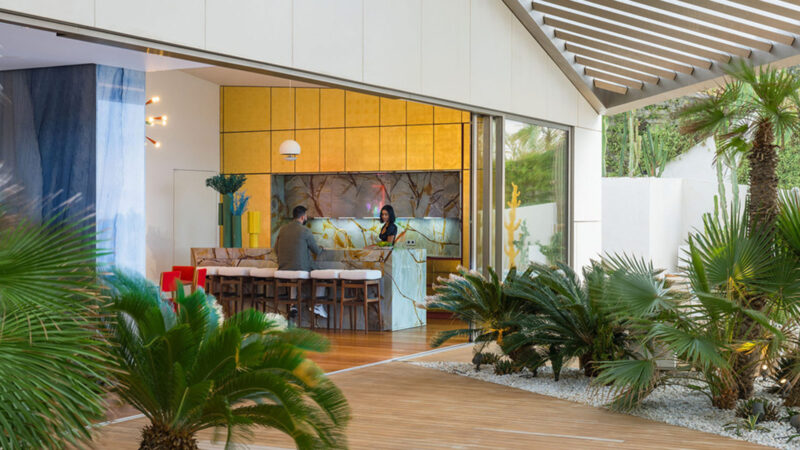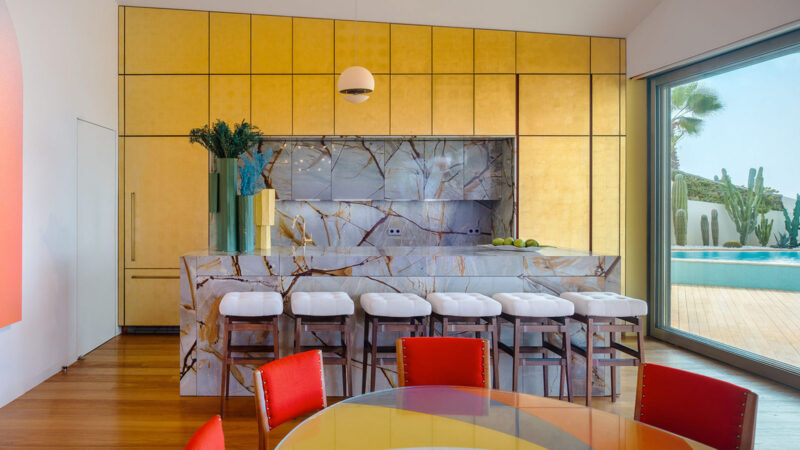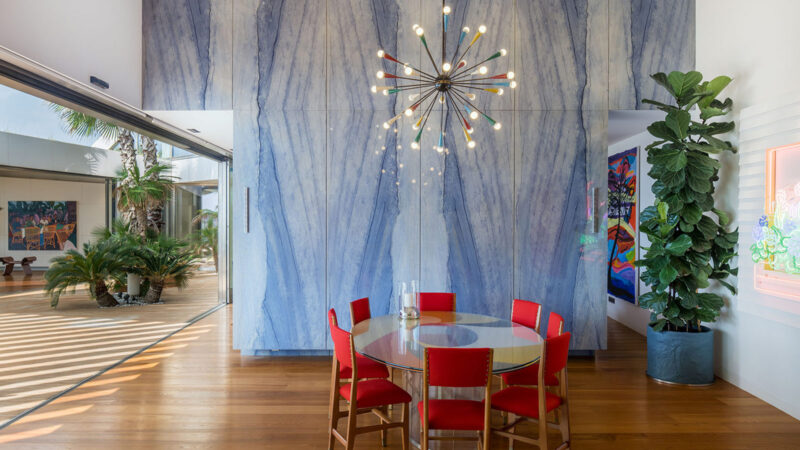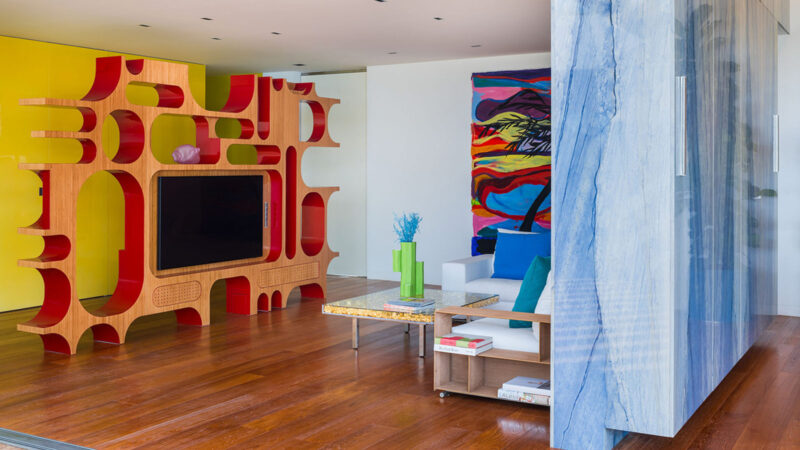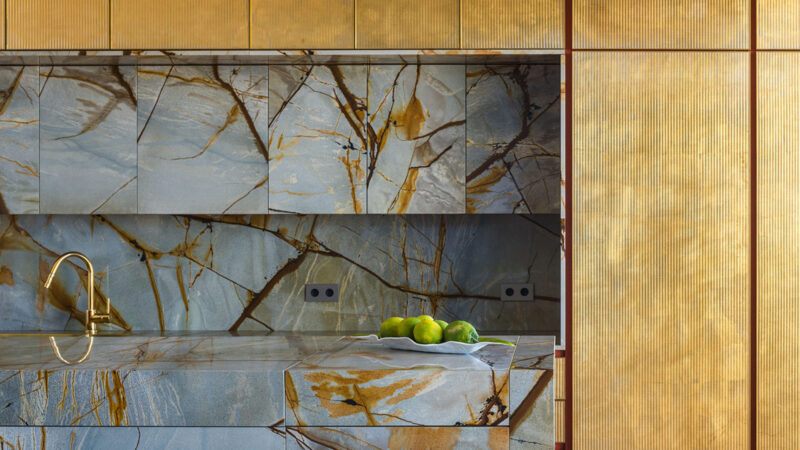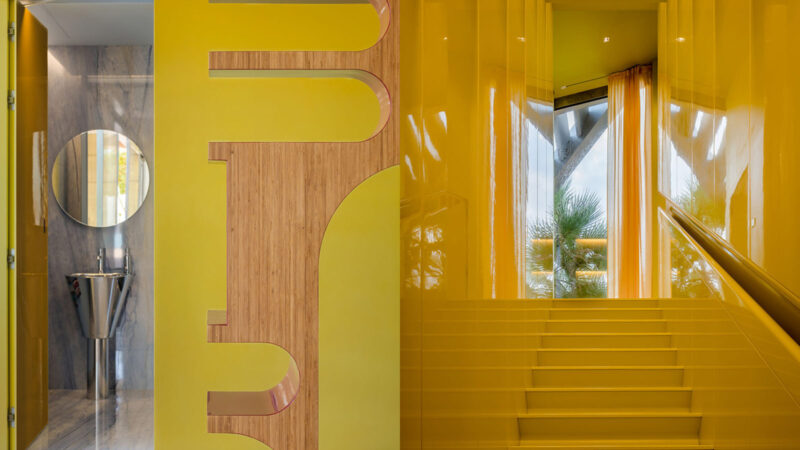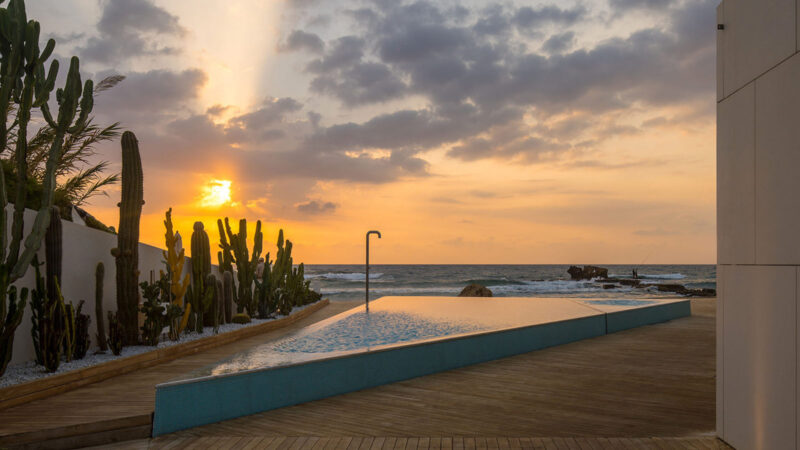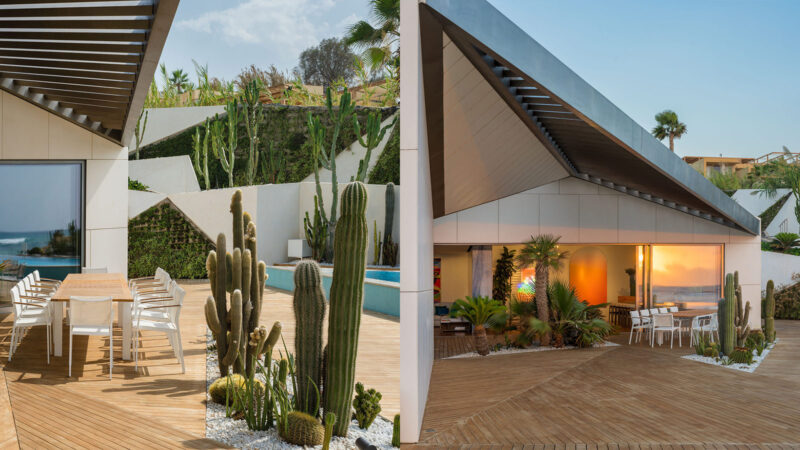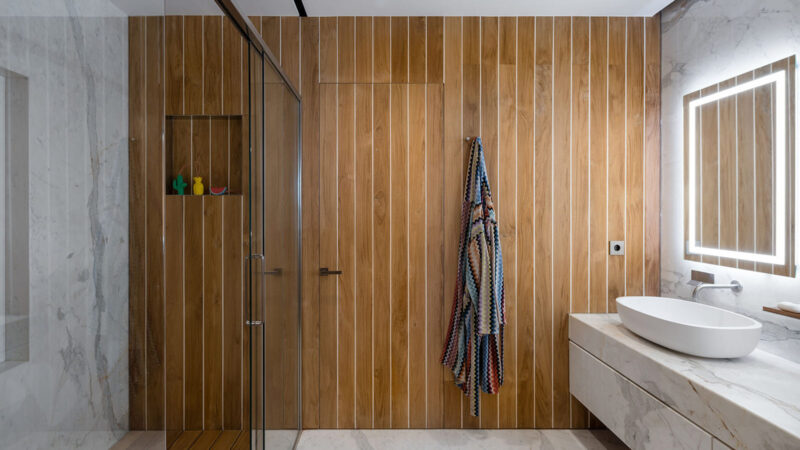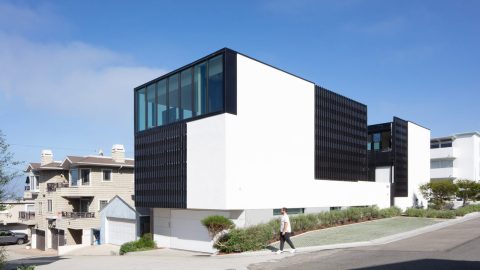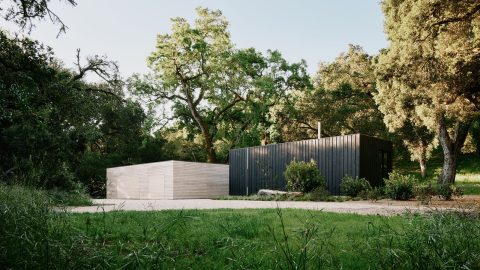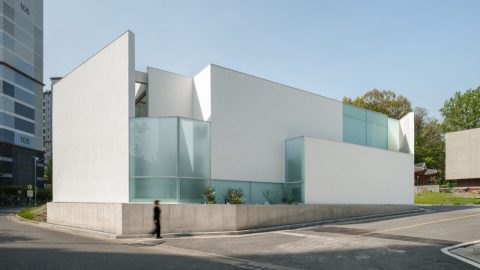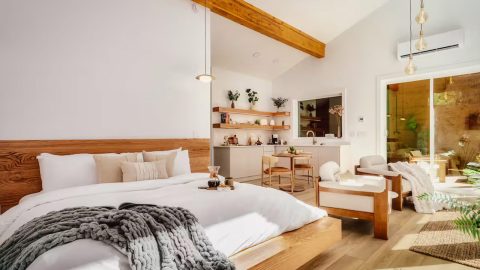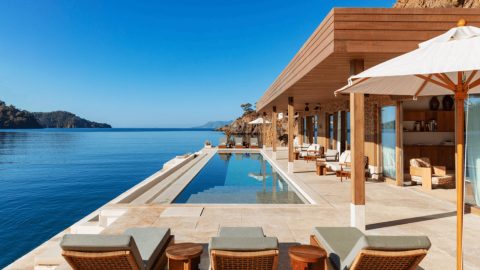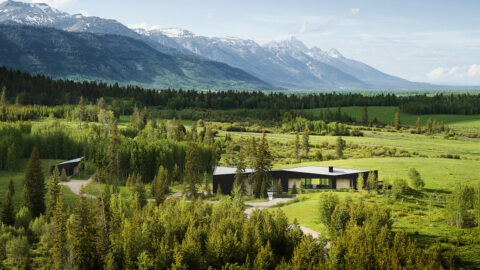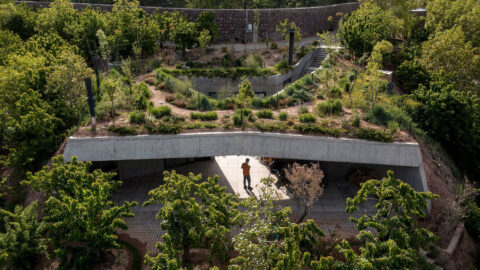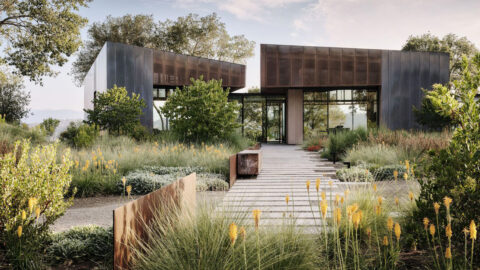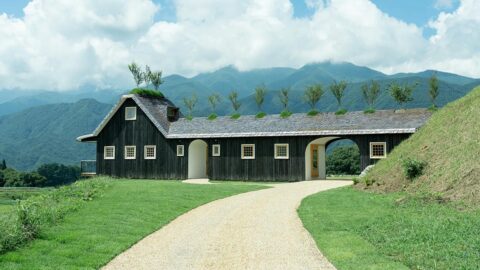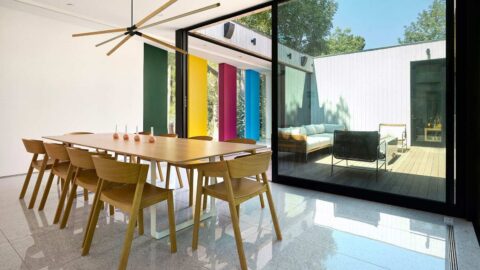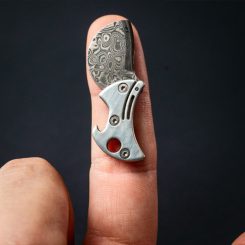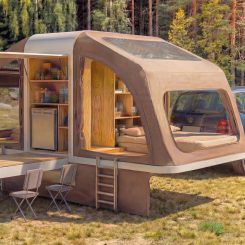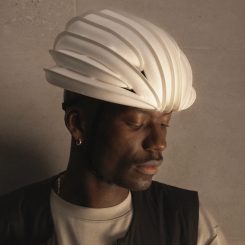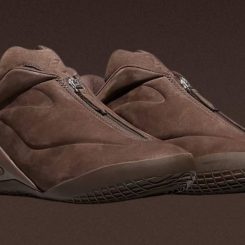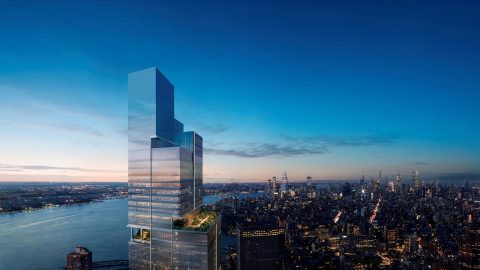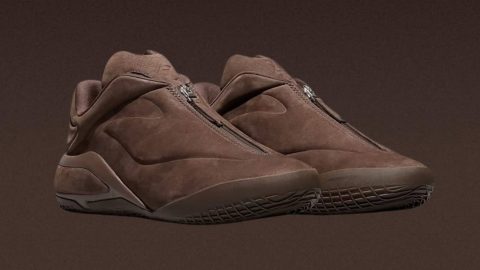Villa Papillon, the first single-family residence completed by AD100 firm WORKac, is a testament to the resilience and creativity of the Lebanese people. Located in Batroun, a coastal city in Lebanon, Villa Papillon was commissioned by Tony Salamé, founder of the Lebanese luxury department-store chain Aïshti and a philanthropist dedicated to rebuilding and restoring Lebanon.
Salamé was drawn to WORKac’s innovative ideas of integrating landscape and architecture, particularly their proposal for a green roof that folds upward in a series of triangular planes to accommodate a tapered second story. The house is configured around a partial courtyard, with a kitchen and dining room in the rear of the house overlooking both the courtyard and the sea. The living areas flow seamlessly from one to another, and showstopper materials such as athletically veined stones and yellow epoxy resin add character and charm.
But Villa Papillon is more than just a beautiful house; it is a symbol of hope and faith in the face of adversity. Reflecting on the civil war of his youth and more recent events such as the Syrian occupation, Hezbollah activity, and the Port of Beirut explosion, Salamé sees Villa Papillon and the wider Marea property as acts of faith in a people, and in people’s willingness to push beyond their own boundaries.
Salamé’s partnership with WORKac is a testament to the power of collaboration and the value of engaging in dialogue to push creative limits. For WORKac, the success of Villa Papillon has led to the opportunity to design the entire Marea campus, which features lush triangular sections that meet the Mediterranean-like abstract waves.
As Salamé and WORKac continue to push creative boundaries, they are inspiring a new generation of architects and designers to create bold and innovative works that reflect the beauty and resilience of the Lebanese people.
For more fascinating architecture, see Kenzo House in the heart of Paris.

